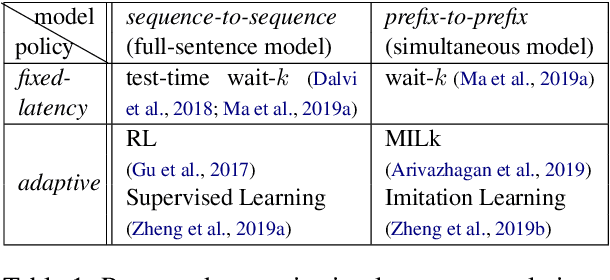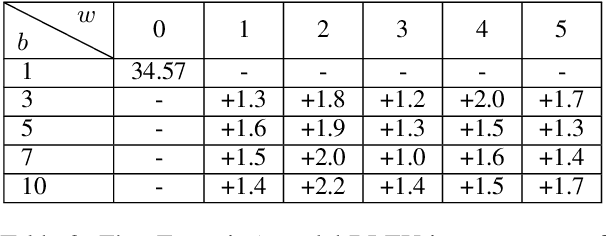Speculative Beam Search for Simultaneous Translation
Paper and Code
Sep 12, 2019



Beam search is universally used in full-sentence translation but its application to simultaneous translation remains non-trivial, where output words are committed on the fly. In particular, the recently proposed wait-k policy (Ma et al., 2019a) is a simple and effective method that (after an initial wait) commits one output word on receiving each input word, making beam search seemingly impossible. To address this challenge, we propose a speculative beam search algorithm that hallucinates several steps into the future in order to reach a more accurate decision, implicitly benefiting from a target language model. This makes beam search applicable for the first time to the generation of a single word in each step. Experiments over diverse language pairs show large improvements over previous work.
 Add to Chrome
Add to Chrome Add to Firefox
Add to Firefox Add to Edge
Add to Edge